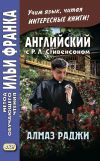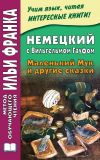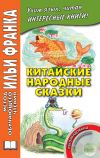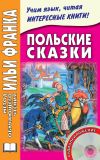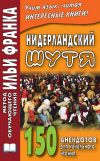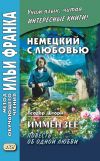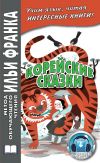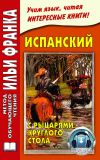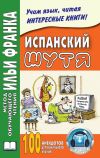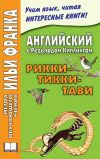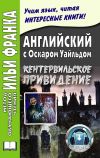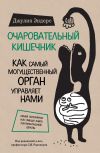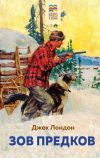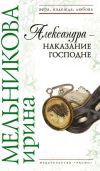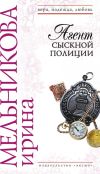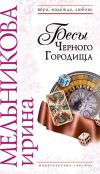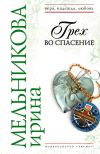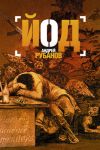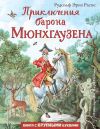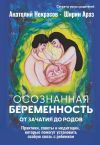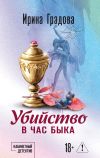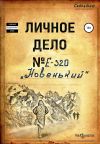
Автор книги: Энтони Хоуп
Жанр: Иностранные языки, Наука и Образование
Возрастные ограничения: 16+
сообщить о неприемлемом содержимом
Chapter 9
A New Use for a Tea-table
(Новое применение для чайного столика)
If I were to detail the ordinary events of my daily life at this time (ели бы мне пришлось в подробностях описывать заурядные события своей повседневной жизни; to detail – подробно излагать), they might prove instructive to people (они могли бы оказаться поучительными для людей; to prove – доказывать; оказываться) who are not familiar with the inside of palaces (которые не знакомы с дворцовыми порядками; inside – внутренняя сторона, изнанка); if I revealed some of the secrets I learnt (если бы я раскрыл несколько тайн, которые узнал), they might prove of interest to the statesmen of Europe (они могли бы оказаться интересными для государственных деятелей Европы). I intend to do neither of these things (я не собираюсь делать ни того, ни другого: «ни одного из этих поступков»; thing – вещь, предмет; действие, поступок). I should be between the Scylla of dullness and the Charybdis of indiscretion (я оказался бы между Сциллой тупости и Харибдой неосторожности), and I feel that I had far better confine myself strictly to the underground drama (и я полагаю, что мне намного лучше ограничиться только той тайной драмой; to feel – ощупывать; чувствовать; полагать, считать; strictly – строго, точно; underground – подземный; подпольный, тайный) which was being played beneath the surface of Ruritanian politics (которая разыгрывалась под поверхностью = в недрах руританской политики). I need only say that the secret of my imposture defied detection (нужно только сказать, что тайна моего перевоплощения не была раскрыта: «не поддалась раскрытию»; imposture – обман, подлог; to defy – оказывать открытое неповиновение; не поддаваться). I made mistakes (я делал ошибки). I had bad minutes: it needed all the tact and graciousness (у меня были и неприятные моменты, требовались вся тактичность и обходительность; minute – минута; мгновение, момент) whereof I was master to smooth over some apparent lapses of memory (которыми я обладал, чтобы сглаживать некоторые явные провалы в памяти; to be master of smth. – владеть, обладать чем-л.; to smooth over – приглаживать; сглаживать, устранять; smooth – гладкий, ровный; lapse – упущение, оплошность) and unmindfulness of old acquaintances of which I was guilty (и невнимательность к своим старым знакомым, чем я /иногда/ страдал: «в которой я был повинен»; unmindful – невнимательный, забывчивый). But I escaped, and I attribute my escape, as I have said before (но мне /удалось/ выкрутиться, и я объясняю свой успех: «свое спасение», как я уже сказал ранее; to escape – совершать побег; избежать /опасности и т. п./, спастись; to attribute – приписывать /чему-л./; объяснять /чем-л./), most of all, to the very audacity of the enterprise (прежде всего, именно дерзостью /самого/ предприятия). It is my belief that, given the necessary physical likeness (по моему убеждению, обладая нужным физическим сходством; belief – вера, доверие; мнение, убеждение), it was far easier to pretend to be King of Ruritania (было намного легче прикинуться королем Руритании; to pretend – притворяться, делать вид; прикидываться, разыгрывать из себя) than it would have been to personate my next-door neighbour (чем выдать себя за своего ближайшего соседа).

If I were to detail the ordinary events of my daily life at this time, they might prove instructive to people who are not familiar with the inside of palaces; if I revealed some of the secrets I learnt, they might prove of interest to the statesmen of Europe. I intend to do neither of these things. I should be between the Scylla of dullness and the Charybdis of indiscretion, and I feel that I had far better confine myself strictly to the underground drama which was being played beneath the surface of Ruritanian politics. I need only say that the secret of my imposture defied detection. I made mistakes. I had bad minutes: it needed all the tact and graciousness whereof I was master to smooth over some apparent lapses of memory and unmindfulness of old acquaintances of which I was guilty. But I escaped, and I attribute my escape, as I have said before, most of all, to the very audacity of the enterprise. It is my belief that, given the necessary physical likeness, it was far easier to pretend to be King of Ruritania than it would have been to personate my next-door neighbour.
One day Sapt came into my room (однажды Сэпт вошел ко мне в комнату). He threw me a letter, saying (он швырнул мне письмо, сказав):
“That’s for you – a woman’s hand, I think (это вам – женский почерк, я полагаю; hand – рука; почерк). But I’ve some news for you first (но сначала у меня для вас новости).”
“What’s that (что такое)?”
“The King’s at the Castle of Zenda (король в замке Зенды),” said he.
“How do you know (откуда вы знаете)?”
“Because the other half of Michael’s Six are there (потому что там другая половина Шестерых Михаэля). I had enquiries made, and they’re all there – Lauengram, Krafstein, and young Rupert Hentzau (я навел справки, все они там – Лауэнграм, Крафштайн и юный Руперт Хенцо): three rogues, too, on my honour, as fine as live in Ruritania (тоже три негодяя, клянусь честью, самые отпетые в Руритании; fine – прекрасный, превосходный /часто ирон./; большой, крайний /эмоц. – усил./).”
“Well (ну и)?”
“Well, Fritz wants you to march to the Castle with horse, foot, and artillery (ну и Фриц хочет, чтобы вы двинулись туда с кавалерией, пехотой и артиллерией; horse – лошадь, конь; кавалерия, конница /собир./; foot – ступня, нога; пехота).”
“And drag the moat?” I asked (и обшарили дно рва? – спросил я; to drag – тащить, волочить; искать на дне /с помощью трала, багра и т. п./).
“That would be about it,” grinned Sapt (что-то вроде этого, – осклабился Сэпт), “and we shouldn’t find the King’s body then (и нам не следует находить = и лучше бы нам не находить /там/ тело короля тогда).”
“You think it’s certain he’s there (вы думаете, он точно там)?”
“Very probable (очень возможно). Besides the fact of those three being there, the drawbridge is kept up (не считая того факта, что эти трое находятся там, /еще и/ мост держат поднятым), and no one goes in without an order from young Hentzau or Black Michael himself (и никто не /может/ войти внутрь без приказа молодого Хенцо или самого Черного Михаэля). We must tie Fritz up (мы должны утихомирить Фрица; to tie up – привязать; ограничить свободу действий, препятствовать).”

One day Sapt came into my room. He threw me a letter, saying:
“That’s for you – a woman’s hand, I think. But I’ve some news for you first.”
“What’s that?”
“The King’s at the Castle of Zenda,” said he.
“How do you know?”
“Because the other half of Michael’s Six are there. I had enquiries made, and they’re all there – Lauengram, Krafstein, and young Rupert Hentzau: three rogues, too, on my honour, as fine as live in Ruritania.”
“Well?”
“Well, Fritz wants you to march to the Castle with horse, foot, and artillery.”
“And drag the moat?’I asked.
“That would be about it,” grinned Sapt, “and we shouldn’t find the King’s body then.”
“You think it’s certain he’s there?”
“Very probable. Besides the fact of those three being there, the drawbridge is kept up, and no one goes in without an order from young Hentzau or Black Michael himself. We must tie Fritz up.”
“I’ll go to Zenda (я поеду в Зенду),” said I.
“You’re mad (вы сошли с ума).”
“Some day (когда-нибудь /сойду/).”
“Oh, perhaps (о, возможно). You’ll very likely stay there though, if you do (хотя, очень вероятно, что вы останетесь там, если поедете).”
“That may be, my friend,” said I carelessly (все может быть, мой друг, – беспечно ответил я).
“His Majesty looks sulky,” observed Sapt (его величество выглядят угрюмо, – заметил Сэпт). “How’s the love affair (как на любовном фронте; affair – дело; любовная история, роман)?”
“Damn you, hold your tongue (черт возьми, придержите свой язык)!” I said.
He looked at me for a moment, then he lit his pipe (с минуту он смотрел на меня, потом разжег свою трубку; to light). It was quite true that I was in a bad temper (это было чистой правдой – я был в дурном настроении), and I went on perversely (но я упрямо продолжал):
“Wherever I go, I’m dodged by half a dozen fellows (куда бы я ни пошел, за мной следует полдюжины парней; to dodge – увертываться, уклоняться; следовать крадучись, незаметно).”
“I know you are; I send ’em,” he replied composedly (я знаю, это я их посылаю, – ответил он спокойно; ’em /разг./ = them).
“What for (для чего)?”
“Well,” said Sapt, puffing away (ну, – сказал Сэпт, выпуская /струю дыма/; to puff – дуть /о ветре/; курить, пускать клубы дыма), “it wouldn’t be exactly inconvenient for Black Michael if you disappeared (для Черного Михаэля было бы очень удобно: «не было бы совсем неудобно», если бы вы исчезли). With you gone, the old game that we stopped would be played (с вашим исчезновением /снова/ разыгрывалась бы та старая партия, которую мы прекратили) – or he’d have a shot at it (или он попытался бы ее возобновить; to have a shot at smth. – пытаться сделать что-л.).”
“I can take care of myself (я сам могу о себе позаботиться).”

“I’ll go to Zenda,” said I.
“You’re mad.”
“Some day.”
“Oh, perhaps. You’ll very likely stay there though, if you do.”
“That may be, my friend,” said I carelessly.
“His Majesty looks sulky,” observed Sapt. “How’s the love affair?”
“Damn you, hold your tongue!” I said.
He looked at me for a moment, then he lit his pipe. It was quite true that I was in a bad temper, and I went on perversely:
“Wherever I go, I’m dodged by half a dozen fellows.”
“I know you are; I send ’em,” he replied composedly.
“What for?”
“Well,” said Sapt, puffing away, “it wouldn’t be exactly inconvenient for Black Michael if you disappeared. With you gone, the old game that we stopped would be played – or he’d have a shot at it.”
“I can take care of myself.”
“De Gautet, Bersonin, and Detchard are in Strelsau (Де Готе, Берзонин и Дэтчард находятся в Стрелсо); and any one of them, lad, would cut your throat as readily (и любой из них, парень, перерезал бы вам глотку так же охотно) – as readily as I would Black Michael’s, and a deal more treacherously (как охотно я /перерезал/ бы ее Черному Михаэлю, /только/ сделал бы это из-за угла; a deal more – гораздо больше; treacherously – предательски, вероломно; treachery – предательство). What’s the letter (что за письмо)?”
I opened it and read it aloud (я открыл = распечатал его и прочитал вслух):
“If the King desires to know what it deeply concerns the King to know (если король желает узнать о том, что короля очень заботит), let him do as this letter bids him (пусть поступит так, как указано в этом письме). At the end of the New Avenue there stands a house in large grounds (в конце Нью-Авеню стоит дом на большом участке земли). The house has a portico, with a statue of a nymph on it (у дома есть крыльцо со статуей нимфы на нем). A wall encloses the garden; there is a gate in the wall at the back (сад окружен стеной; сзади в стене есть калитка). At twelve o’clock tonight, if the King enters alone by that gate (сегодня в полночь, если король один войдет в эту калитку), turns to the right, and walks twenty yards (повернет направо и пройдет двадцать ярдов), he will find a summer-house, approached by a flight of six steps (он увидит летний домик, /к которому/ ведет лестница из шести ступеней; to find – находить, отыскивать; обнаруживать; to approach – приближаться, подходить; flight – полет; пролет лестницы). If he mounts and enters, he will find someone (если он поднимется и войдет, то обнаружит того) who will tell him what touches most dearly his life and his throne (кто расскажет ему о том, что напрямую касается его жизни и престола; dearly – очень). This is written by a faithful friend (это написано преданным другом). He must be alone (он должен быть один). If he neglects the invitation his life will be in danger (если он проигнорирует это приглашение, его жизнь будет в опасности; to neglect – пренебрегать /чем-л./; не обращать внимания, игнорировать). Let him show this to no one (пусть не показывает это никому), or he will ruin a woman who loves him (иначе он погубит женщину, которая его любит): Black Michael does not pardon (Черный Михаэль не прощает).”

“De Gautet, Bersonin, and Detchard are in Strelsau; and any one of them, lad, would cut your throat as readily – as readily as I would Black Michael’s, and a deal more treacherously. What’s the letter?”
I opened it and read it aloud:
“If the King desires to know what it deeply concerns the King to know, let him do as this letter bids him. At the end of the New Avenue there stands a house in large grounds. The house has a portico, with a statue of a nymph on it. A wall encloses the garden; there is a gate in the wall at the back. At twelve o’clock tonight, if the King enters alone by that gate, turns to the right, and walks twenty yards, he will find a summer-house, approached by a flight of six steps. If he mounts and enters, he will find someone who will tell him what touches most dearly his life and his throne. This is written by a faithful friend. He must be alone. If he neglects the invitation his life will be in danger. Let him show this to no one, or he will ruin a woman who loves him: Black Michael does not pardon.”
“No,” observed Sapt, as I ended, “but he can dictate a very pretty letter (нет, – заметил Сэпт, когда я закончил, – но он все же умеет диктовать весьма занимательные письма).”
I had arrived at the same conclusion (я пришел к такому же выводу), and was about to throw the letter away (и уже собирался выбросить письмо), when I saw there was more writing on the other side (когда заметил, что на другой стороне тоже что-то написано).
“Hallo! there’s some more (эй! да тут еще).”
“If you hesitate,” the writer continued, “consult Colonel Sapt (если вы сомневаетесь, – продолжал автор письма, – посоветуйтесь с полковником Сэптом; writer – писатель; автор /статьи, письма/) – ”
“Eh,” exclaimed that gentleman, genuinely astonished (а? – воскликнул Сэпт: «тот джентльмен», искренне удивившись). “Does she take me for a greater fool than you (она принимает меня за еще большего дурака, чем вас)?”
I waved to him to be silent (я махнул ему, чтоб помолчал).
“Ask him what woman would do most (спросите его, какая женщина сделала бы все возможное) to prevent the duke from marrying his cousin (чтобы помешать герцогу жениться на своей кузине), and therefore most to prevent him becoming king (и, следовательно, помешать ему стать королем)? And ask if her name begins with – A (и спросите, не начинается ли ее имя с буквы «А»)?”
I sprang to my feet (я вскочил на ноги; to spring – прыгать, вскакивать). Sapt laid down his pipe (Сэпт положил свою трубку).
“Antoinette de Mauban, by heaven!” I cried (Антуанетта де Мобан, ей-богу, – вскричал я).
“How do you know?” asked Sapt (откуда вы знаете? – спросил Сэпт).
I told him what I knew of the lady, and how I knew it (я рассказал ему /все/, что знал об этой даме, и как я узнал это). He nodded (он кивнул).
“It’s so far true that she’s had a great row with Michael,” said he, thoughtfully (вообще-то, это правда, что она здорово поссорилась с Михаэлем, – сказал он задумчиво; so far – до сих пор; до определенной степени; to have a row with smb. – поскандалить, поругаться с кем-л.).

“No,” observed Sapt, as I ended, “but he can dictate a very pretty letter.”
I had arrived at the same conclusion, and was about to throw the letter away, when I saw there was more writing on the other side.
“Hallo! there’s some more.”
“If you hesitate,” the writer continued, “consult Colonel Sapt – ”
“Eh,” exclaimed that gentleman, genuinely astonished. “Does she take me for a greater fool than you?”
I waved to him to be silent.
“Ask him what woman would do most to prevent the duke from marrying his cousin, and therefore most to prevent him becoming king? And ask if her name begins with – A?”
I sprang to my feet. Sapt laid down his pipe.
“Antoinette de Mauban, by heaven!” I cried.
“How do you know?” asked Sapt.
I told him what I knew of the lady, and how I knew it. He nodded.
“It’s so far true that she’s had a great row with Michael,” said he, thoughtfully.
“If she would, she could be useful (если это так, то она могла бы быть полезной),” I said.
“I believe, though, that Michael wrote that letter (и все же, я думаю, что Михаэль написал это письмо).”
“So do I, but I mean to know for certain (я тоже, но я намерен узнать наверняка). I shall go, Sapt (я пойду, Сэпт).”
“No, I shall go (нет, я пойду),” said he.
“You may go as far as the gate (вы можете пойти не дальше калитки).”
“I shall go to the summer-house (я пойду в этот летний домик).”
“I’m hanged if you shall (провалиться мне на этом месте, если вы пойдете)!”
I rose and leant my back against the mantelpiece (я встал и прислонился спиной к каминной доске).
“Sapt, I believe in that woman, and I shall go (Сэпт, я доверяю этой женщине, и я пойду).”
“I don’t believe in any woman,” said Sapt, “and you shan’t go (я не доверяю ни одной женщине, – сказал он, – и вы не пойдете).”
“I either go to the summer-house or back to England (либо я иду в летний домик, либо возвращаюсь в Англию),” said I.
Sapt began to know exactly how far he could lead or drive (Сэпт начал ясно понимать, как долго он может приказывать; far – далеко; to lead – вести, показывать путь; руководить, управлять; to drive – гнать; управлять), and when he must follow (а когда должен подчиняться; to follow – следовать за /кем-л., чем-л./).
“We’re playing against time,” I added (время играет против нас: «мы играем против времени», – добавил я). “Every day we leave the King where he is there is fresh risk (каждый день, не делая попыток спасти короля: «оставляя короля там, где он находится», мы идем на новый риск: «существует новый риск»; fresh – свежий; новый, другой). Every day I masquerade like this, there is fresh risk (каждый день, /когда/ я притворяюсь, как сейчас, мы идем на новый риск; to masquerade – участвовать в маскараде; притворяться, выдавать себя за кого-л.). Sapt, we must play high; we must force the game (Сэпт, мы должны сделать крупную ставку, мы должны форсировать игру; to play high – играть по-крупному; to force – заставлять, принуждать; ускорять, форсировать).”

“If she would, she could be useful,” I said.
“I believe, though, that Michael wrote that letter.”
“So do I, but I mean to know for certain. I shall go, Sapt.”
“No, I shall go,” said he.
“You may go as far as the gate.”
“I shall go to the summer-house.”
“I’m hanged if you shall!”
I rose and leant my back against the mantelpiece.
“Sapt, I believe in that woman, and I shall go.”
“I don’t believe in any woman,” said Sapt, “and you shan’t go.”
“I either go to the summer-house or back to England,” said I.
Sapt began to know exactly how far he could lead or drive, and when he must follow.
“We’re playing against time,” I added. “Every day we leave the King where he is there is fresh risk. Every day I masquerade like this, there is fresh risk. Sapt, we must play high; we must force the game.”
“So be it,” he said, with a sigh (пусть будет так, – сказал он со вздохом).
To cut the story short, at half past eleven that night Sapt and I mounted our horses (короче говоря, той же ночью в половине двенадцатого мы с Сэптом сели на коней; to cut short – прерывать, обрывать; сокращать /по времени/; story – повесть, рассказ). Fritz was again left on guard (Фрица снова оставили на страже), our destination not being revealed to him (не открывая ему цели нашей /поездки/; destination – место назначения, цель). It was a very dark night (ночь была очень темной). I wore no sword, but I carried a revolver (меч я оставил: «я не носил меча», но имел при себе револьвер; to carry – нести; иметь при себе), a long knife, and a bull’s-eye lantern (длинный нож и сигнальный фонарь; bull’s eye – «бычий глаз» /фонарь, в абажур которого вставлены стекла/). We arrived outside the gate (мы подъехали к калитке; outside – наружная сторона). I dismounted (я слез с коня). Sapt held out his hand (Сэпт протянул руку).
“I shall wait here,” he said. “If I hear a shot, I’ll (я буду ждать здесь, – сказал он, – если услышу выстрел, я) – ”
“Stay where you are; it’s the King’s only chance (оставайтесь на месте: «где вы есть»; это единственный шанс для короля). You mustn’t come to grief too (вы не должны тоже попасть в ловушку; to come to grief – попасть в беду).”
“You’re right, lad (ты прав, парень). Good luck (удачи)!”
I pressed the little gate (я толкнул маленькую калитку; to press – нажимать, надавливать). It yielded, and I found myself in a wild sort of shrubbery (она подалась, и я оказался в каких-то буйно /разросшихся/ кустах; to yield – приносить, давать /плоды, урожай/; уступать, сдавать /позицию/; sort of – как бы, вроде). There was a grass-grown path and, turning to the right (там оказалась заросшая травой тропка, и, повернув направо) as I had been bidden, I followed it cautiously (как мне было указано, я осторожно двинулся по ней). My lantern was closed, the revolver was in my hand (мой фонарь был закрыт, револьвер /я держал/ в руке). I heard not a sound (я не слышал ни звука = стояла полная тишина). Presently a large dark object loomed out of the gloom ahead of me (вскоре впереди из мрака выступило что-то большое и темное; object – предмет, объект; to loom out – вырисовываться). It was the summer-house (это был летний домик).

“So be it,” he said, with a sigh.
To cut the story short, at half past eleven that night Sapt and I mounted our horses. Fritz was again left on guard, our destination not being revealed to him. It was a very dark night. I wore no sword, but I carried a revolver, a long knife, and a bull’s-eye lantern. We arrived outside the gate. I dismounted. Sapt held out his hand.
“I shall wait here,” he said. “If I hear a shot, I’ll – ”
“Stay where you are; it’s the King’s only chance. You mustn’t come to grief too.”
“You’re right, lad. Good luck!”
I pressed the little gate. It yielded, and I found myself in a wild sort of shrubbery. There was a grass-grown path and, turning to the right as I had been bidden, I followed it cautiously. My lantern was closed, the revolver was in my hand. I heard not a sound. Presently a large dark object loomed out of the gloom ahead of me. It was the summer-house.
Reaching the steps, I mounted them and found myself confronted by a weak, rickety wooden door (дойдя до ступенек, я поднялся /по/ ним и очутился перед непрочной, расшатанной деревянной дверью; to confront – стоять лицом к лицу, стоять напротив; weak – слабый, хилый; непрочный), which hung upon the latch (которая держалась на щеколде; to hang – висеть; to hang upon – держаться на /чем-л./, опираться на /что-л./). I pushed it open and walked in (я толкнул ее и вошел). A woman flew to me and seized my hand (ко мне бросилась женщина и схватила меня за руку).
“Shut the door,” she whispered (закройте дверь, – прошептала она).
I obeyed and turned the light of my lantern on her (я повиновался и направил на нее свет моего фонаря). She was in evening dress, arrayed very sumptuously (она была в вечернем платье, весьма роскошном; to array – наряжать, украшать), and her dark striking beauty was marvellously displayed in the glare of the bull’s-eye (и ее загадочная, поразительная красота дивным образом открылась в свете фонаря; dark – темный; тайный, неясный; marvelous – изумительный, чудесный; to display – показывать, демонстрировать; проявлять, обнаруживать). The summer-house was a bare little room (летний домик являл собой пустую маленькую комнатку; bare – голый, обнаженный; пустой), furnished only with a couple of chairs and a small iron table (из мебели там была пара стульев да небольшой железный столик; to furnish – обставлять, меблировать), such as one sees in a tea garden or an open-air café (какой /можно/ увидеть на летней площадке какой-нибудь чайной или кафе; one – некто, кто-то; употребляется в неопределенно-личных предложениях; tea garden – чайная, кафе на открытом воздухе; air – воздух).
“Don’t talk,” she said (/ничего/ не говорите, – сказала она). “We’ve no time (у нас нет времени). Listen (слушайте)! I know you, Mr. Rassendyll (я вас знаю, мистер Рассендил). I wrote that letter at the duke’s orders (я написала то письмо по приказу герцога).”
“So I thought (так я и думал),” said I.
“In twenty minutes three men will be here to kill you (через двадцать минут здесь будут трое, чтобы убить вас).”
“Three – the three (трое – те трое)?”
“Yes. You must be gone by then (да; к тому времени вы должны уйти). If not, tonight you’ll be killed (если нет, сегодня ночью вас убьют) – ”
“Or they will (или их убьют).”

Reaching the steps, I mounted them and found myself confronted by a weak, rickety wooden door, which hung upon the latch. I pushed it open and walked in. A woman flew to me and seized my hand.
“Shut the door,” she whispered.
I obeyed and turned the light of my lantern on her. She was in evening dress, arrayed very sumptuously, and her dark striking beauty was marvellously displayed in the glare of the bull’s-eye. The summer-house was a bare little room, furnished only with a couple of chairs and a small iron table, such as one sees in a tea garden or an open-air café.
“Don’t talk,” she said. “We’ve no time. Listen! I know you, Mr. Rassendyll. I wrote that letter at the duke’s orders.”
“So I thought,” said I.
“In twenty minutes three men will be here to kill you.”
“Three – the three?”
“Yes. You must be gone by then. If not, tonight you’ll be killed – ”
“Or they will.”
“Listen, listen (слушайте)! When you’re killed, your body will be taken to a low quarter of the town (когда вас убьют, ваше тело отвезут в нижнюю часть города; quarter – четверть; сторона, часть). It will be found there (/потом/ его там найдут). Michael will at once arrest all your friends (Михаэль тут же арестует всех ваших друзей) – Colonel Sapt and Captain von Tarlenheim first (первыми – полковника Сэпта и капитана фон Тарленхайма) – proclaim a state of siege in Strelsau, and send a messenger to Zenda (объявит в Стрелсо осадное положение и пошлет гонца в Зенду). The other three will murder the King in the Castle (остальные трое убьют короля в замке), and the duke will proclaim either himself or the princess (и герцог провозгласит /правителем/ либо себя, либо принцессу) – himself, if he is strong enough (себя, если будет достаточно силен = если будет чувствовать поддержку). Anyhow, he’ll marry her, and become king in fact, and soon in name (как бы то ни было, он женится на ней и станет королем по сути, а вскоре и официально; in name – номинально). Do you see (вы понимаете)?”
“It’s a pretty plot (неплохо придумано: «хороший план»; plot – интрига, заговор; план). But why, madame, do you (но почему вы, мадам) —?”

“Listen, listen! When you’re killed, your body will be taken to a low quarter of the town. It will be found there. Michael will at once arrest all your friends – Colonel Sapt and Captain von Tarlenheim first – proclaim a state of siege in Strelsau, and send a messenger to Zenda. The other three will murder the King in the Castle, and the duke will proclaim either himself or the princess – himself, if he is strong enough. Anyhow, he’ll marry her, and become king in fact, and soon in name. Do you see?”
“It’s a pretty plot. But why, madame, do you —?”
“Say I’m a Christian – or say I’m jealous (скажем, я христианка, или, скажем, я ревнива). My God! shall I see him marry her (Боже мой! неужели я увижу, как он женится на ней)? Now go; but remember – this is what I have to tell you (теперь идите, но помните – это то, что я должна вам сказать) – that never, by night or by day, are you safe (никогда, ни днем ни ночью, вы не /будете/ в безопасности). Three men follow you as a guard (три человека следуют за вами в качестве охраны). Is it not so (это не так)? Well, three follow them (и трое следуют за ними); Michael’s three are never two hundred yards from you (эти трое, /посланные/ Михаэлем, всегда не дальше, чем в двухстах ярдах от вас). Your life is not worth a moment (ваша жизнь ничего не /будет/ стоить; moment – момент, миг; важность, значение) if ever they find you alone (если они встретят вас одного). Now go (теперь идите). Stay, the gate will be guarded by now (стойте, калитку, вероятно, уже охраняют; will /зд./ – выражает предположение; by now – к этому времени). Go down softly, go past the summer-house, on for a hundred yards (тихонько спускайтесь, пройдете от летнего домика сотню ярдов), and you’ll find a ladder against the wall (и увидите лестницу, /приставленную/ к стене). Get over it, and fly for your life (перелезайте через нее и бегите, что есть сил; to fly – летать; улепетывать, удирать /разг./; to run for one’s life – убегать изо всех сил).”
“And you?” I asked (а вы? – спросил я).
“I have my game to play too (мне тоже есть, чем заняться). If he finds out what I have done (если он узнает, что я сделала; to find out – разузнать, выяснить), we shall not meet again (мы с вами больше не встретимся). If not, I may yet – But never mind (если же нет, то я смогу еще… но, не беспокойтесь). Go at once (уходите сейчас же).”
“But what will you tell him (но что вы ему скажете)?”
“That you never came – that you saw through the trick (что вы вообще не пришли, что вы разгадали обман; to see through – видеть насквозь).”
I took her hand and kissed it (я взял ее руку и поцеловал).

“Say I’m a Christian – or say I’m jealous. My God! shall I see him marry her? Now go; but remember – this is what I have to tell you – that never, by night or by day, are you safe. Three men follow you as a guard. Is it not so? Well, three follow them; Michael’s three are never two hundred yards from you. Your life is not worth a moment if ever they find you alone. Now go. Stay, the gate will be guarded by now. Go down softly, go past the summer-house, on for a hundred yards, and you’ll find a ladder against the wall. Get over it, and fly for your life.”
“And you?” I asked.
“I have my game to play too. If he finds out what I have done, we shall not meet again. If not, I may yet – But never mind. Go at once.”
